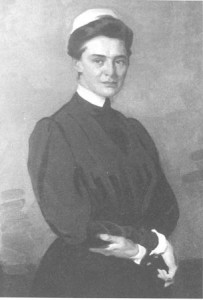The Heart of the Matter
A new research center brings together researchers and minority communities to fight heart disease
For 80 years, cardiovascular disease has been the leading cause of death in the United States. Health disparities continue to put some people, such as black and Hispanic adults, at greater risk of disability and death from these illnesses. Both the human and economic costs–estimated at over $150 billion a year in the U.S.–are substantial.
Statistics, however, don’t tell the whole story. Faces and memories do: the face of a grandmother who lost a battle against heart disease or the memories of family members who died of heart attacks before their time.
These very human visions are the motivation behind Hopkins nursing faculty who have dedicated their careers to cardiovascular nursing research, resulting in what Dean Martha N. Hill, PhD, RN, FAAN, calls “arguably the strongest group of NIH-funded cardiovascular nurse researchers” of any nursing school in the nation.
Heart health has a new focal point at the Johns Hopkins University School of Nursing: the Research Center for Cardiovascular Health in Vulnerable Populations. Thanks to a four-year, $1.9 million grant from the National Institutes of Health (NIH), under the direction of professor Miyong Kim, PhD, RN, FAAN, the Center is bringing together community engagement, scientific investigation, education, and policy initiatives to help reduce cardiovascular health disparities.
“A key component to the success of this center is its collaboration with both academic and community entities,” she observed. “The Center will be a catalyst for advancing cardiovascular health promotion intervention and translational science.” The aim is to support research to develop, test, and disseminate new interventions to improve cardiovascular health in underserved and understudied populations. In addition, the Center will provide state-of-the-art technology-assisted interventions, integrated training and career development activities, and targeted health policy initiatives.
Joining Kim as Center co-directors are faculty members Jerilyn Allen, ScD, RN, FAAN; Deborah Gross, DNSc, RN, FAAN; Cheryl Dennison, PhD, RN, ANP; Hae-Ra Han, PhD, RN; and Dean Hill, who describes the Center as “a dream come true.” She welcomes the Center as an opportunity to bring in a broad array of other faculty involved in health disparities, such as Sarah Szanton, PhD, CRNP, whose research focuses on older adults, to help “test new interventions to manage cardiovascular and other chronic diseases with the goal of minimizing patient burden and improving quality of life.”
The Center also will give a home to ongoing research initiatives in cardiovascular care, including local and international inquiry by faculty researchers such as Han, Dennison, and Deborah E. Jones, PhD, RN. For example, Han and Jones, focusing respectively on Korean Americans and African American communities, have found through their research into these diverse populations that when cardiovascular disease is an issue, both populations experience the same four health problems implicated in heart disease: obesity, diabetes, high blood pressure, and high triglyceride levels. They agree that with appropriate, culturally competent outreach, people can learn how to reduce those problems through diet, exercise, medication, and stress reduction. Jones and Han have found, however, that often, the greatest challenge is gaining the trust of the community, readying it to be open to learn about getting heart healthy. It’s a challenge that nurses are ideally positioned to meet.
Associate professor Cheryl R. Dennison, PhD, RN, ANP, and colleagues echo the important role nurses can play in reducing cardiovascular risk. In “Strategies for implementing and sustaining therapeutic lifestyle changes as part of hypertension management in Africa Americans” [Postgraduate Medicine, May 2009], she examines why fewer than 1/3 of African Americans with hypertension make lifestyle changes known to help control it and suggests ways health care providers can help patients be more receptive to adopting a heart-healthy lifestyle. “By working one-on-one and building individualized plans for patients, nurses can help patients overcome barriers to heart-healthy living,” suggests Dennison.
Dean Hill believes the Center has the capacity to help give community-based cardiovascular nursing a boost, by “sharing new knowledge about cardiovascular disease prevention and treatment to nurses engaged in clinical care with at-risk groups–whether around the corner or around the world–to the benefit of millions.”
–Teddi Fine Hopkins Nursing Research History
Hopkins Nursing Research History
1907 M. Adelaide Nutting, superintendent of nurses, helps launch the American Journal of Nursing.
1984 M. Adelaide Nutting Chair established by the Johns Hopkins Nurses Alumni Association in honor of this pioneer in nursing research.
1988 Nursing research program initiated at The Johns Hopkins Hospital.
1988 Elsie M. Lawler Chair established by Caroline Pennington ‘18 in honor of former superintendent.
1989 Independence Foundation Chair established by the Independence Foundation.
1993 Anna D. Wolf Professorship established by nursing alumni, Wolf family members, and friends of the school.
1993 Five students enroll in the first class of the PhD program at the Johns Hopkins University School of Nursing.
1994 Center for Nursing Research established to support faculty research to promote health and improve health care delivery. A Scientific Review Committee– the first at Hopkins—is established to advise researchers and review funding proposals before they are submitted.
2001 Dorothy Evans Lynne fund supports pilot studies conducted by teams of nurses from the school and the hospital.
2002-2009 Center on Health Disparities Research promotes culturally sensitive nursing interventions aimed at improving care for underserved populations.
2003 Leonard and Helen R. Stulman Professorship in Mental Health and Psychiatric Nursing funded by the Leonard and Helen R. Stulman Charitable Foundation.
2004 Joint doctoral program, launched in partnership with Peking Union Medical College (PUMC) and funded by the China Medical Board of New York, Inc., creates the first nursing PhD program in China.
2004-2010 Center for Collaborative Intervention Research serves as a national model for interdisciplinary research teams in the development, testing, and dissemination of innovative interventions to improve health outcomes.
2006 Undergraduate Research Honors Program provides baccalaureate students with research education, experience, and faculty mentoring.
2008 School ranked #6 among nursing schools in NIH funding, which totaled $4.8 million for FY08. Total sponsored projects funding was $8.9 million the same year.
2009-2013 Research Center for Cardiovascular Health in Vulnerable Populations significantly reduces cardiovascular health disparities through community engagement.
 Outsized Influence
Outsized Influence Bloomberg Distinguished Professor Brings Expertise on Disparities and Childhood Obesity
Bloomberg Distinguished Professor Brings Expertise on Disparities and Childhood Obesity Kids are bigger coronavirus spreaders than many doctors realized
Kids are bigger coronavirus spreaders than many doctors realized Getting Curious with Jonathan Van Ness… and Dr. Brittany Wenniserí:iostha Jock
Getting Curious with Jonathan Van Ness… and Dr. Brittany Wenniserí:iostha Jock Knowledge Gap at the Heart of VAD Care
Knowledge Gap at the Heart of VAD Care







